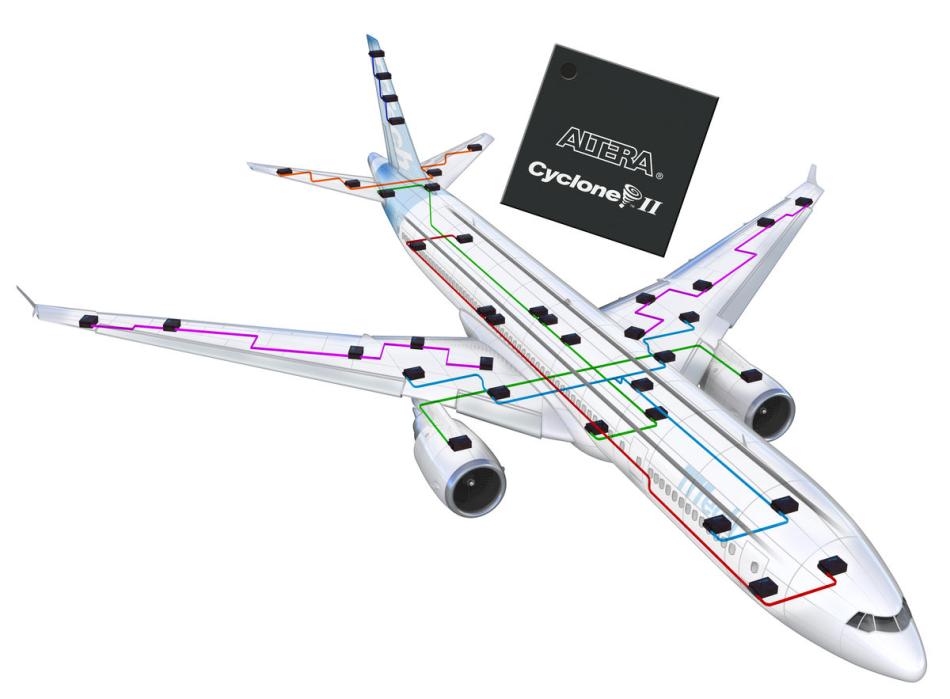October 23, 2007
TTTech Computertechnik AG announces support for Altera Corporation’s Cyclone II and Cyclone III FPGAs with their Time-Triggered Protocol (TTP). Aerospace customers using this combined solution will benefit from reduced system complexity and strictly deterministic communications for aerospace applications.

Traditional TTP IP solutions, utilized in the past in ASICs for major aerospace programs, can be now also implemented using Altera’s low-cost Cyclone II and Cyclone III FPGAs or HardCopy II structured ASICs. Altera’s Cyclone III FPGA family provides the highest performance and lowest power, compared to any competing low-cost FPGA. Cyclone III devices are available in up to three temperature grades to support varying operating environments with junction temperature support from -40 °C to +125 °C.
TTP controller IP implemented with Cyclone II and Cyclone III devices enable seamless subsystem integration for complex safety-critical aircraft networks and systems. The TTP IP has been designed to meet aerospace requirements in compliance with DO 254/DO 178B Level A. It is successfully applied in modular and distributed control systems in aerospace projects such as in the Boeing 787 Dreamliner, the Airbus A380 and the Lockheed Martin F-16. TTP chip IP is available as synthesizable netlist and can be ported into Altera’s Cyclone II or Cyclone III FPGAs or its HardCopy II structured ASICs.
"Having the support of TTTech’s TTP controller chip IP provides an important component of Altera’s enhanced COTS strategy in the aerospace market. The support of reusable DO-254 compliant IP cores insures safety practices required by the aerospace industry and reduces program risk and cost," says Karl-Heinz Gatterer, Military and Aerospace Marketing Manager Europe from Altera.
"Together with Altera’s Cyclone II, Cyclone III and NIOS II embedded processors, we are able to address application requirements for a very compact design of distributed embedded systems and smart sensor / actuator modules, that otherwise would require several components – thus reducing system cost and increasing reliability," says Guenter Motzet, Director Chip IP Design from TTTech, "With this wide application background, aerospace customers can immediately benefit from the success of TTP implementation."